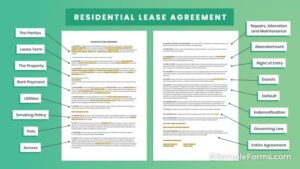
Welcome to the wild world of Debt Management, where your financial future marries your budget in a whirlwind of numbers, promises, and perhaps a few hair-pulling moments. Imagine wrestling a bear—only this bear is made up of bills, loans, and that pesky credit card that seems to multiply like rabbits. Fear not! With the right strategies and a pinch of humor, you can tame this beast and emerge victorious.
In this journey, you’ll uncover a treasure trove of debt management strategies, from clever budgeting tricks that feel less like math and more like a magic show to debt consolidation options that will have you feeling like a wizard with a shiny new wand. And let’s not forget the invaluable role of credit counseling, where experts turn into your financial fairy godparents, showing you the way to a brighter, debt-free tomorrow!
Debt Management Strategies
Debt can feel like a weight around your neck, and if you’re not careful, it can drown you faster than a lead balloon in a pool party! Luckily, there are several strategies that can help keep your head above water and navigate the choppy financial seas. Effective debt management isn’t just about paying bills; it’s about crafting a master plan that transforms your financial future into a smooth-sailing expedition.
Buckle up, because we’re diving into the world of debt management strategies!
Effective Debt Management Strategies
When it comes to managing debt, having a toolbox full of handy strategies is essential. Each method can be tailored to fit your unique financial situation, allowing you to tackle debt like a pro. Here’s a collection of methods that can help reduce your debt and get your finances back on track:
- The Snowball Method: Pay off your smallest debts first, gaining momentum as you go. It’s like rolling a snowball; as it picks up more snow (or savings), it becomes harder and harder to stop!
- The Avalanche Method: Focus on paying off debts with the highest interest rates first. This strategy keeps your overall interest costs down and is like a savvy ice-pick—breaking through those financial mountains!
- Debt Consolidation: Combine multiple debts into a single loan with a lower interest rate. Think of it as putting all your laundry in one wash—much easier to handle!
- Negotiating with Creditors: Sometimes, all it takes is a good old-fashioned chat with your creditors. They may be willing to lower your interest rates or settle for less than you owe. After all, the squeaky wheel gets the grease!
- Creating a Debt Management Plan: Work with a credit counseling agency to develop a personalized plan. It’s like having a financial GPS to guide you through the potholes of debt!
The Role of Budgeting in Debt Reduction
Budgeting is the unsung hero of debt management, serving as the backbone of any successful financial strategy. When you create a budget, you gain visibility into your spending habits and can identify areas where you can cut back. It’s not just about restricting your fun; it’s about making your money work for you! By sticking to a well-crafted budget, you can allocate extra funds toward your debt repayments.
Here’s how budgeting impacts debt reduction:
- Identifying Wasteful Spending: A budget helps pinpoint unnecessary expenses that can be trimmed, freeing up cash for debt payments.
- Establishing Payment Priorities: Knowing exactly how much you can pay towards debt each month allows you to create a structured repayment plan.
- Setting Financial Goals: Budgets can help establish realistic short-term and long-term financial goals, motivating you to stick to your debt reduction strategy.
- Staying Accountable: Regularly reviewing your budget encourages accountability, helping you resist the urge to overspend on impulse buys!
- Emergency Fund Creation: A good budget helps you build an emergency fund, which can prevent future debt accumulation from unforeseen expenses.
“A budget is telling your money where to go instead of wondering where it went.” – John C. Maxwell
In summary, effective debt management requires a multifaceted approach, combining strategic repayment methods with solid budgeting practices. By embracing these strategies, you can conquer your debt like a financial superhero, armed and ready to take on whatever life throws your way!
Debt Consolidation Options

When the debt monster shows up at your doorstep, it’s time to strategize like a chess grandmaster. Enter debt consolidation, your trusty knight in shining armor. This option allows you to combine multiple debts into a single, more manageable payment. It’s like putting all your eggs in one basket, but with better security and far fewer cracks! Let’s explore the various debt consolidation options available, plus some pros and cons to get you roaring like a lion instead of sneaking around like a mouse.
Types of Debt Consolidation Options
There are several paths you can take when consolidating debt, each with its unique charm and risks. Here’s a delightful lineup of popular options:
- Personal Loans: These unsecured loans provide a lump sum to pay off existing debts, leaving you with one shiny new payment. Just think of it like swapping out your old, worn-out sneakers for a sleek new pair – but be cautious of those interest rates!
- Balance Transfer Credit Cards: If your credit score is up to snuff, a balance transfer card can let you move high-interest debt without paying interest for an introductory period. It’s like the VIP lounge of credit card deals – just avoid the temptation to rack up more debt while you’re there!
- Home Equity Loans: Tapping into your home’s equity can be a way to consolidate debt, but it’s akin to using a chainsaw to chop veggies – risky if you’re not careful. You’ll use your home as collateral, which could lead to losing your castle if things go south.
- Debt Management Plans: Working with a credit counseling agency might seem like joining a group therapy session for your finances. They negotiate with creditors on your behalf to lower interest rates and create a manageable repayment plan.
Advantages and Disadvantages of Personal Loans for Debt Consolidation
Personal loans can be both the superhero and the villain in your debt consolidation story. Here’s a breakdown to help you navigate the drama:Advantages:
- Lower Interest Rates: If you have good credit, personal loans often come with lower interest rates than credit cards!
- Fixed Payments: Unlike those fluctuating credit card payments, personal loans have fixed monthly payments, helping you plan your budget without surprise parties.
- Quick Access to Funds: You could potentially get a personal loan faster than you can say “debt-free,” allowing for rapid debt relief.
Disadvantages:
- Fees and Charges: Keep an eye out for origination fees or prepayment penalties – they can sneak up like a ninja!
- Risk of Accumulating More Debt: If you don’t change your spending habits, you might find yourself in the same situation with an extra layer of debt frosting.
- Impact on Credit Score: Applying for a personal loan may result in a hard inquiry on your credit report, which could ding your score temporarily.
Choosing the Right Consolidation Method
Selecting the perfect debt consolidation method is like picking a flavor at an ice cream parlor – you want something that suits your taste buds and budget! Here’s a handy guide to help you choose wisely:
- Assess Your Debt Amount: Understanding how much debt you have will influence your choice. Smaller debts might suit a balance transfer card, while larger debts could require a personal loan.
- Evaluate Your Credit Score: Your credit score is your golden ticket. A higher score opens doors to better loan terms, so it’s worth checking before diving into options.
- Consider Your Financial Goals: Think about your long-term objectives. Are you looking for lower monthly payments or to pay off debt quickly? Your goals will steer your decision.
- Research Lenders and Terms: Don’t just settle for the first offer like a kid grabbing the first candy on the shelf. Shop around for the best rates, terms, and customer service reviews.
Debt consolidation is not just about combining payments; it’s about regaining control and paving the way to a brighter financial future!
Credit Counseling and Financial Guidance
Navigating the labyrinth of debt can feel like trying to find a unicorn in a haystack. Thankfully, credit counseling agencies act as those trusty steeds that guide you toward financial clarity and stability. These agencies not only help you understand your debt but also equip you with the tools and knowledge to manage it better. With the right credit counselor at your side, you can tackle your financial woes like a knight in shining armor—or at least with a shiny new budget plan!
Role of Credit Counseling Agencies in Debt Management
Credit counseling agencies serve as your financial GPS, steering you away from the rocky terrains of debt and toward the safe shores of financial literacy. These professionals provide a plethora of services designed to identify your unique financial situation and create a personalized plan to regain control. Their roles include:
- Assessment of Financial Situation: Counselors review your income, expenses, and debts to help you understand your financial standing.
- Debt Management Plans (DMP): They assist in creating a structured payment plan that allows you to pay off debts over time, usually at reduced interest rates.
- Budgeting Assistance: Credit counselors provide guidance on establishing budgets that align with your financial goals.
- Education: They educate clients about personal finance, helping them make informed decisions about spending, saving, and investing.
“Credit counselors are like financial superheroes—minus the capes but with all the knowledge!”
Evaluating and Selecting a Reputable Credit Counseling Service
Choosing the right credit counseling service is akin to picking the best avocado at the grocery store; you want one that’s ripe and ready to help you flourish. To ensure you find a reputable agency, consider the following tips:
- Check Accreditation: Look for agencies that are accredited by reputable organizations like the National Foundation for Credit Counseling (NFCC) or the Financial Counseling Association of America (FCAA).
- Read Reviews: Customer reviews can reveal whether a counseling agency has a track record of success or if they’re notorious for financial foul play.
- Understand Fees: A good credit counseling service should be transparent about their fees. Avoid those that charge exorbitant fees or pressure you into signing up.
- Verify Services Offered: Ensure the agency provides comprehensive services, including budgeting advice, credit report analysis, and educational resources.
Importance of Financial Education in Credit Management and Debt Relief
Financial education is the secret sauce that turns a bland debt management plan into a flavorful success story. When clients are educated about managing finances, they make better decisions that lead to long-term stability. The benefits of financial education include:
- Empowerment: Knowledge is power! Understanding financial concepts empowers individuals to take control of their money and make informed choices.
- Prevention of Future Debt: Educated individuals are less likely to fall into debt traps, as they recognize the importance of living within their means.
- Improved Credit Scores: With better financial habits comes the potential for healthier credit scores, which can lead to lower interest rates in the future.
- Informed Decisions: Financial education enables individuals to navigate complex financial products, making them less susceptible to scams and predatory lending.
“Financial education isn’t just a luxury; it’s a superpower for your wallet!”
End of Discussion

As we wrap up our little adventure through the land of Debt Management, remember that the journey doesn’t end here. With a bag full of strategies, tools, and maybe a couple of dad jokes about finances, you’re now armed to tackle your debts like a pro. Whether you opt for consolidation spells, budget mastery, or seek guidance from the wise sages of credit counseling, you’ve got this! Go forth and conquer your financial fears—your wallet will thank you!
FAQ Section
What is debt management?
Debt management is the process of managing your debts in a way that helps you pay them off effectively while maintaining your overall financial health.
How can I improve my credit score with debt management?
By consistently making payments on time, reducing your debt-to-income ratio, and keeping credit card balances low, you can boost your credit score significantly.
Is debt consolidation always a good option?
Not necessarily! It can simplify payments and lower interest rates, but it may also extend the life of your debt or lead to higher costs if not managed properly.
How do I know if I need credit counseling?
If you’re feeling overwhelmed by your debts, struggling to make payments, or unsure how to manage your finances, credit counseling can provide essential guidance.
Can budgeting really help me get out of debt?
Absolutely! A well-structured budget allows you to track your expenses, prioritize debt payments, and free up funds for savings or additional debt reduction.







